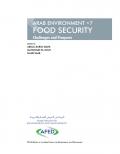
The feasibility of green growth is studied in the context of climate change. As carbon emissions are easier to quantify than many other types of environmental pressure, it will be possible to reach a more definite conclusion about the likelihood of green growth than has been possible in the long-standing historical debate on growth versus the environment. This paper calculates the rate of decoupling between gross domestic product (GDP) and GHG emissions needed to achieve internationally agreed climate targets. Next, eight arguments are considered that together suggest that fast decoupling will be very difficult. Subsequently, this study examines the main lines of research used by proponents of green growth to support their viewpoint, including theoretical arguments, exercises with integrated assessment models, and studies of the environmental Kuznets curve hypothesis. It will be concluded that decoupling as a main or single strategy to combine economic and environmental aims should be judged as taking a very large risk with our common future. To minimize this risk we need to seriously consider reducing our dependence on growth.
This paper proposes a simple index of economic progress that weighs in the monetary cost induced by climate change mitigation policies as well as the health benefits arising from the reduction in local air pollution. The shadow price of pollution is calculated indirectly through its impact on life expectancy. Taking into account the health benefits of mitigation policies significantly reduces their monetary cost in China and India, as well as in countries with large fossil-based energy-producing sectors (Australia, Canada and the United States).
As economic hubs, cities also have a crucial role to play in mitigating global climate change. The Intergovernmental Panel on Climate Change (IPCC) has found particularly great opportunities in fastgrowing urban centres in developing countries, but cities at all levels are pursuing climate action. Many of the measures they are choosing – e.g. retrofitting buildings to be more energy-efficient, improving public transit, promoting biking and walking, encouraging denser development – have also been shown to have broader economic and social benefits. This paper looks at this issue in the other direction: how cities’ economic development strategies are likely to affect global greenhouse gas (GHG) emissions. It examines policies and actions that are already widely used by cities to advance economic development and competitiveness, assess the evidence on their net GHG impact, and identify key issues that cities may want to address if they wish to align their climate and economic development goals.
Shifting our fossil-fuelled civilisation to clean modes of production and consumption requires deep transformations in our energy and economic systems. Innovation in physical technologies and social behaviours is key to this transformation. But innovation has not been at the heart of economic models of climate change. This paper reviews the state of the art on the economics of innovation, applies recent insights to climate change. The core insight is that technological innovation is a path-dependent process in which history and expectations matter greatly in determining eventual outcomes.
